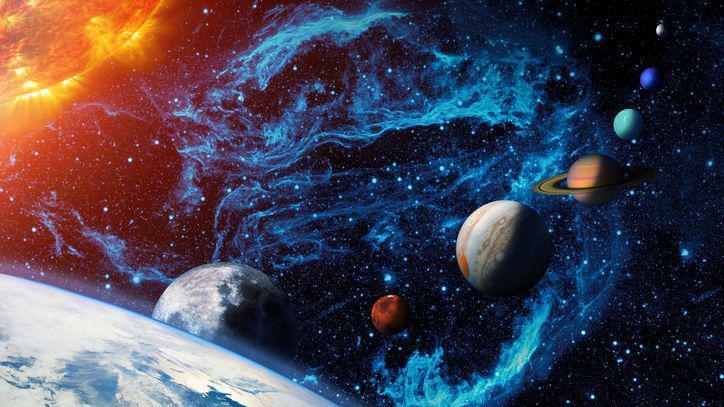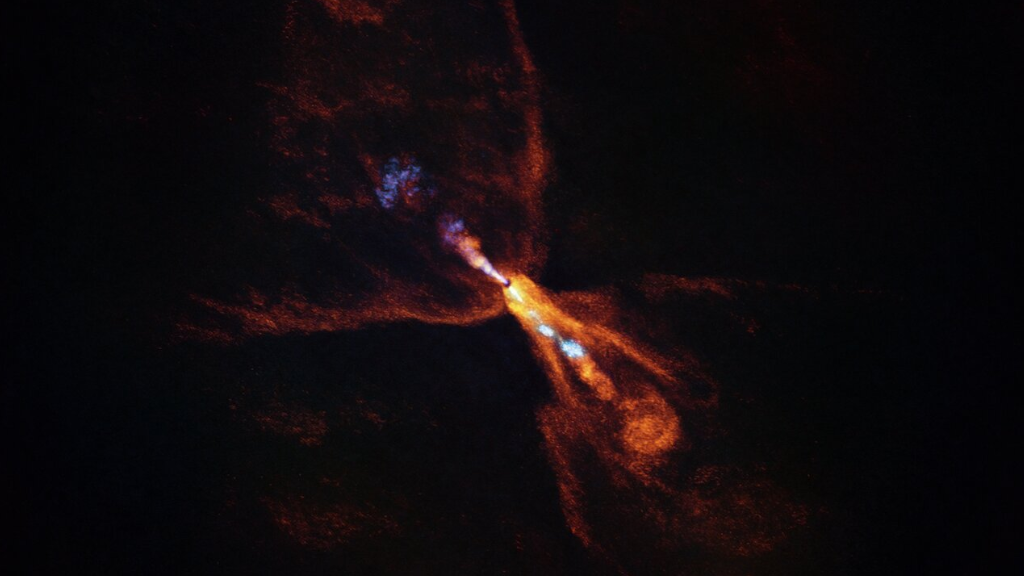Scientists spot start of a new solar system for first time

Scientists say the discovery could help us better understand how our own Solar System formed
- Published
Astronomers say they have observed the moment when planets start forming around a distant star for the first time.
It's the earliest stage of planet formation ever seen by scientists.
The new planetary system is taking shape around HOPS-315, a baby star which is located 1,300 light years from Earth in the Orion Nebula.
Experts say that the discovery could help better understand the beginnings of our own Solar System.

HOPS-315 is a baby star located 1,300 light years from Earth in the Orion Nebula
More space news
School's Lego man goes on out-of-this-world adventure
- Published30 June
What have scientists discovered?
HOPS-315 is a baby star, which looks like our own Sun in its youth, and is located 1,300 light years from Earth in the Orion Nebula.
A team of international researchers used the ALMA telescope in the Chilean desert along with the James Webb Space Telescope in order to witness the moment when planets began to form around HOPS-315.
Experts say that they saw the creation of the first specks of planet-forming material around HOPS-315 - hot minerals which are just beginning to harden.
The minerals were first spotted by the James Webb Space Telescope.
The team then used the European Southern Observatory's ALMA telescope to find out exactly where the chemical signals were coming from.
They discovered that these minerals were found in a small portion of the disc which is similar to the asteroid belt that surrounds our Sun.
Scientists say that this discovery could allow them to see what the formation of our own Solar System may have been like billions of years ago.
"We're seeing a system that looks like what our Solar System looked like when it was just beginning to form," study co-author Merel van 't Hoff from Purdue University in America explained.
Lead author, Melissa McClure of Leiden University in the Netherlands, added: "For the first time, we have identified the earliest moment when planet formation is initiated around a star other than our Sun."
